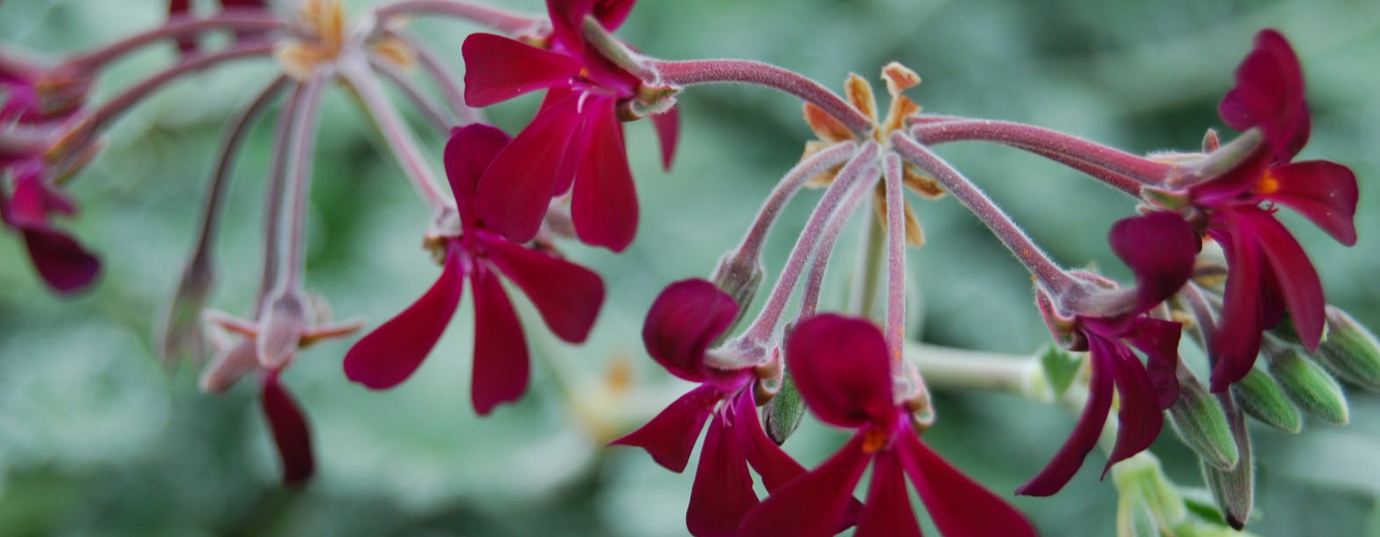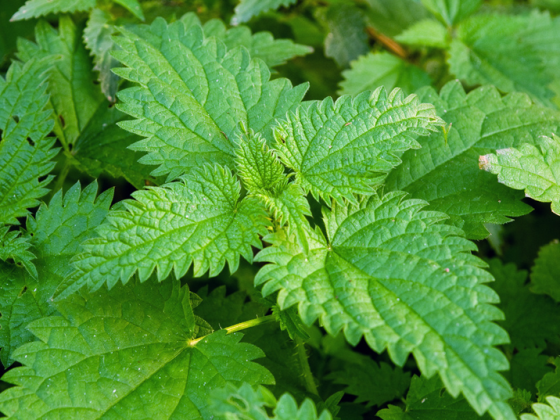In various folk medicine traditions such as TCM, Ayurvedic or Indian medicine, there are a number of herbal preparations for asthma and COPD, but they have often not been verified with clinical studies. There are also medicinal plants in Western phytotherapy that are used for lung diseases. Some additive efficacy has been demonstrated with ivy and Pelargonium sidoides.
In recent decades, the prevalence of asthma and chronic obstructive pulmonary disease (COPD) has increased, especially in the Western Hemisphere. According to WHO, asthma is one of the most common non-communicable diseases [1]. According to the Swiss Lung League, about 400,000 people in Switzerland suffer from this incurable disease, which is the fourth leading cause of death worldwide [2]. In 2005, more than three million people died from COPD worldwide, accounting for about 5% of deaths [3].
The main drug interventions for asthma and COPD are preparations containing corticosteroid or bronchodilators (selective beta2-sympathomimetics or unselective sympathomimetics, respectively), or combinations of both, which are usually inhaled.
Phytotherapy
Herbal preparations for asthma and COPD exist in various folk medicine traditions. Since conventional medicines cannot cure asthma or COPD, but only relieve symptoms, the demand for complementary medicine treatments for these lung diseases has increased in recent years. Especially in Traditional Chinese Medicine (TCM), Ayurvedic as well as Indian folk medicine, many medicinal plants are proposed for the treatment of asthma, which are supposed to have similar mechanisms of action as the traditional antiasthmatic drugs. A review of herbal medicines appeared in 2011 [4]. However, the studies cited are all in vitro studies or pharmacological animal studies. The results provide some evidence of efficacy.
Clinical studies
On the one hand, there are a number of clinical trials that have looked at the efficacy of herbal medicines in asthma or COPD, and on the other hand, there are indeed medicinal plants for which clinical trials have demonstrated some additive efficacy.
Asthma
Meta-analysis: Huntley and Ernst published a review paper in 2000 [5]. They evaluated 17 randomized clinical trials. Of these, six belonged to TCM, eight to traditional Indian medicine, and one study was from Japanese Kampo medicine. However, from the point of view of Western phytotherapy, only two studies are of interest, as they investigated the efficacy of marijuana and of ivy extract [6, 7].
Marijuana (Cannabis sativa): In ten subjects with bronchial asthma, smoking a two percent THC preparation decreased respiratory resistance compared to placebo. However, the difference was not significant [6].
Ivy leaves (Hedera helix): In another double-blind, randomized crossover clinical trial [7], 24 children with bronchial asthma were treated with a preparation of 35 mg of dried ivy leaf extract for three days.
Although improvement in pulmonary function test (FEV) did not significantly increase in the verum group compared with placebo, breathing resistance showed a significant decrease compared with placebo. From this, the authors concluded that ivy leaf extract has secretolytic and bronchospasmolytic activity.
COPD
Meta-analysis: In a review similar to that of Huntley and Ernst [5], Guo et al. the efficacy of herbal medicines in COPD [8] and came to a consistently negative result (This result with Prospan contradicts [7]). They concluded from the evaluated studies that there are reasonable doubts against the efficacy of herbal preparations in COPD. Their judgment is based on the evaluation of 14 clinical trials with herbal preparations, four of which belong to Western phytotherapy [9–12]. These studies reviewed the efficacy of both ginseng [9] and a multi-substance herbal mixture [10], containing echinacea as well as Thuja occidentalis and Baptisia tinctoria. Both were tested against placebo. In another study, ivy was compared with ambroxol [11]. Furthermore, a study was included in which Prospan®, a herbal medicinal product with an ivy extract as active ingredient, was tested against an unspecified herbal cough syrup.
EPs® 7630: Several studies have now appeared examining Pelargonium sidoides (header photo), a medicinal plant originally native to southern Africa [13]. Mathys et al. showed that the addition of the standardized Pelargonium extract EPs® 7630 to a standard therapy for COPD significantly and clinically relevant reduced the number of exacerbations and the necessary use of antibiotics compared to placebo.
Summary
Various herbal preparations and herbal medicines are available for the treatment of bronchial asthma and chronic obstructive pulmonary disease (COPD). A critical evaluation of the existing studies shows that
- A non-significant reduction in respiratory resistance in asthma by marijuana.
- a significant decrease in respiratory resistance due to ivy leaf extract
- a significant reduction in exacerbations in COPD with the standardized Pelargonium sidoides extract EPs® 7630.
The efficacy of other medicinal plants such as ginseng in COPD would need to be further evaluated by additional studies.
Literature:
- www.who.int, Fact sheet No 307, Update November 2013.
- www.lungenliga.ch.
- www.who.int Fact sheet No 315, Update October 2013.
- Ravindra A,Dhake AS: A review on herbal antiasthmatics, Orient Pharm Exp Med 2011(2); 11: 77-90.
- Huntley A, Ernst E: Herbal medicine for asthma: a systematic review, Thorax. 2000 (11); 55: 925-929.
- Tashkin DP, et al: Acute effects of marijuana on airway dynamics in spontaneous and experimentally indicated bonchial asthma, in: Braude MC, Szara S (eds.): The pharmacology of marijuana, New York, Raven Press, 1976, 785-801.
- Mansfield H, et al: Therapy of bronchial asthma with dried ivy leaf, Münch Med Wschr 1998; 140: 26-30.
- Guo R, et al: Herbal medicines fort he treatment of COPD: a systematic review. Eur Resp J 2006; 28: 330-338.
- Gross D, et al: Ginseng improves pulmonary functions and exercise capacity in patients with COPD, Monaldi Arch Chest Dis 2002; 57: 242-246.
- Hauke W, et al: Esberitox N as supportive therapy when providing standard antibiotic treatment in subjects with a severe bacterial infection acute exacerbation of chronic bronchitis: a multicentric, prospective, double-blind, placebo-controlled study. Chemotherapy 2002; 48: 259-266.
- Meyer-Wegener J, et al: Ivy versus ambroxol in the treatment of chronic bronchitis: a double-blind comparative study of clinical efficacy and tolerance of ivy dried leaf extract and ambroxol. Z Allg Med (Ind Med Gaz) 1993; 69: 61-66.
- Gulyas A. et al: Consistent therapy of chronic obstructive airway disease in children, Respiratory Lung Cr 1997; 23: 291-294.
- Matthys H, et al: Randomised, double-blind, placebo-controlled trial of EPs 7630 in adults with COPD, Respir Med 2013 (5); 107: 691-701.
HAUSARZT PRAXIS 2014; 9(4): 9











